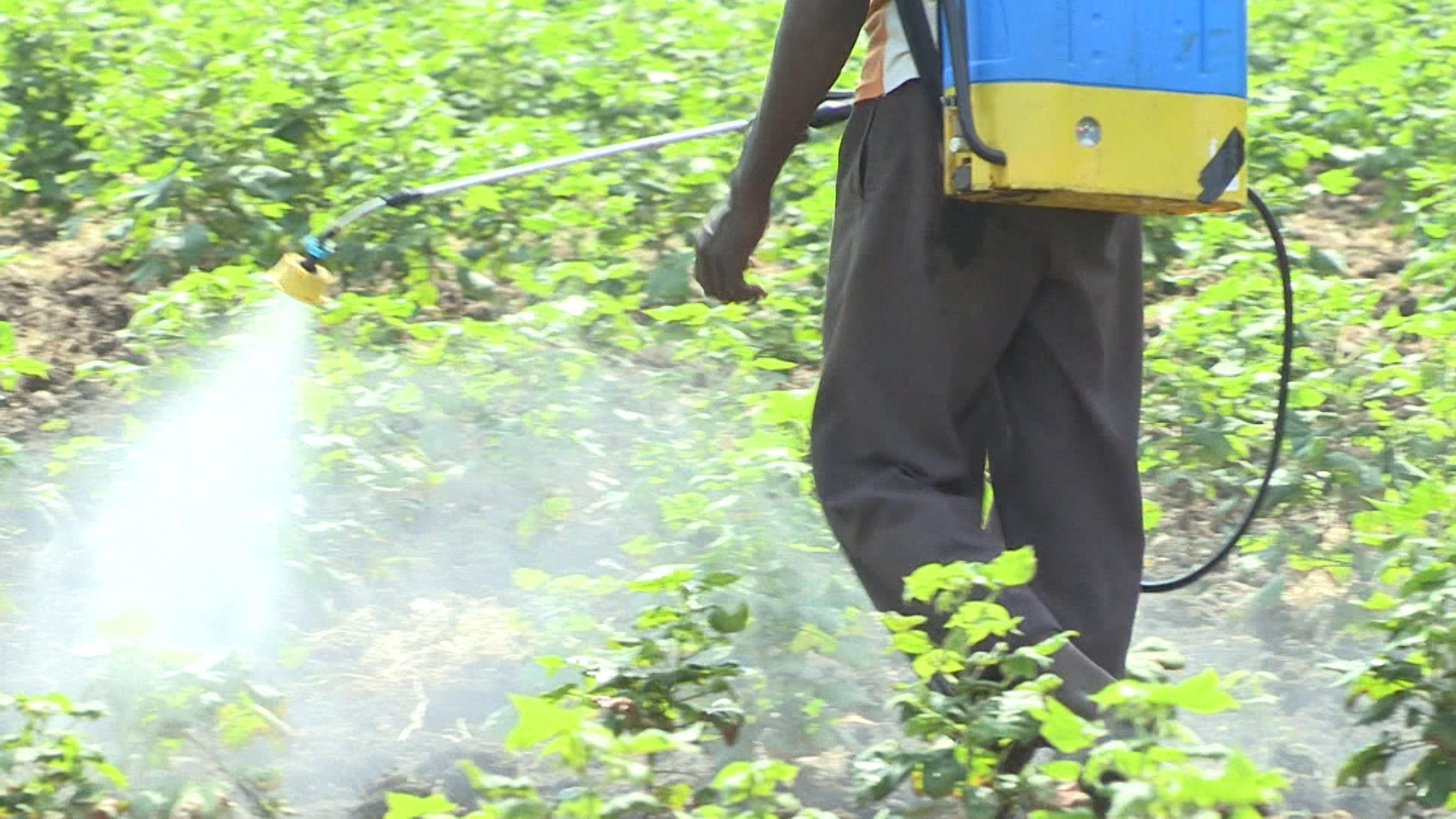
Swiss government against dangerous pesticides export ban

Switzerland’s government says it is against a ban on the export of dangerous pesticides but that in future importing countries will have to give explicit consent.
The Federal Council laid out its position on Thursday in response to parliamentarians calling for stricter regulations – including an export ban on pesticides prohibited in Switzerland due to their negative health and environment impacts.
Parliamentarian Lisa Mazzone had put forward the example of India where 20 farmers died in 2017 and hundreds fell ill after spraying cotton fields with insecticide, which poisoned them.
Swiss watchdog Public Eye claims the insecticide Polo, produced by Basel-based Syngenta, is partly to blame – an accusation that Syngenta denieExternal linksExternal link.
Diafenthiuron, the active ingredient in the insecticide Polo, is on the list of substances bannedExternal link or facing severe restrictions in Switzerland. Syngenta argues that diafenthiuron is simply not authorised for sale in the country because it has not been registered for use.
The Federal Council indicated that it considers a general export ban on certain pesticides to be “disproportionate if the protection of human health and the environment can be achieved by other means”.
The protective measures required for the use of plant protection products are the responsibility of the authorities of the country in which the product is used, noted the Federal Council.
CORRECTION: A previous version of this story was unclear about the status of Polo in Switzerland.

More
Swiss made but banned in Switzerland

In compliance with the JTI standards
More: SWI swissinfo.ch certified by the Journalism Trust Initiative





























You can find an overview of ongoing debates with our journalists here . Please join us!
If you want to start a conversation about a topic raised in this article or want to report factual errors, email us at english@swissinfo.ch.